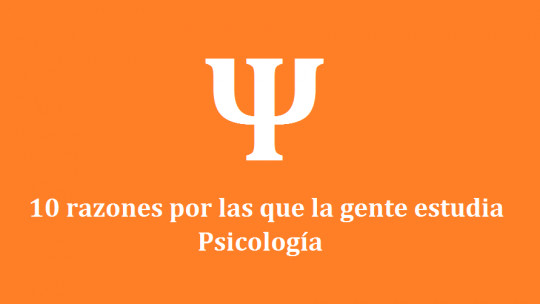Self-assessments are techniques that help us have a better understanding of ourselves. They can be done at practically any time and can address very varied topics.
Whether from the field of education, through psychodiagnosis and reaching the world of organizations, self-assessments allow us to acquire a better knowledge of ourselves.
In this article we are going to talk about the types of self-assessments, both taking into account their scope of application and the format in which they are presented. In addition, we are going to do a quick review of what they consist of and what purpose they have.
Self-assessment is a powerful tool for personal and professional growth. It involves evaluating your own abilities, behaviors, and characteristics to gain insight into your strengths and areas for improvement. Whether you’re looking to advance in your career, improve your relationships, or simply understand yourself better, self-assessment is a crucial first step. In this article, we’ll explore the concept of self-assessment, its benefits, and practical strategies for conducting your own self-assessment effectively.
What is self-assessment?
Self-assessments are methods that allow us to have a better knowledge of ourselves, whether addressing aspects more related to our physical and mental capabilities or addressing topics such as our emotions or state of health.
The main peculiarity of self-assessments is that we ourselves administer them. In other types of evaluations, such as heteroevaluations and co-evaluations, it is another person or a group of them who administer a questionnaire or carry out some type of analysis of a specific person.
Since self-assessments can be applied in multiple ways, there are several tools that allow them to be carried out.
To be useful, is necessary to be sincere when answering them and carry out deep self-reflection to be able to detect those strengths and weaknesses that we may have or, in case we are talking about health problems, know if we are really behind something serious.
Self-assessment is the process of introspectively evaluating your own skills, behaviors, and attitudes. It’s about taking a step back and reflecting on who you are, what you’ve achieved, and where you can improve. This process can be applied in various aspects of life, including:
- Personal Development: Understanding your personality, values, and emotional intelligence.
- Professional Growth: Assessing your job performance, skills, and career trajectory.
- Academic Progress: Evaluating your learning progress and academic achievements.
The Importance of Self-Assessment
Self-assessment is essential for several reasons:
- Self-Awareness: It helps you become more aware of your strengths and weaknesses, allowing you to make informed decisions about your life and career.
- Goal Setting: By understanding where you stand, you can set realistic and achievable goals for the future.
- Continuous Improvement: Regular self-assessment encourages a mindset of continuous growth and learning, helping you to adapt and improve over time.
What purpose do they have?
Self-assessments are widely used in daily life. Situations as simple and mundane as answering a test at the driving school, asking yourself review questions for an exam or analyzing the pros and cons of continuing with your relationship would be examples of self-evaluations.
Depending on the area in which the self-assessment is being carried out, we can talk about different purposes:
1. Education
In the educational field they are widely used to know what level one has on a certain topic or to what extent the knowledge given in the classroom has been established.
If they are done before taking an exam or trying to answer an exercise, they allow us to know what knowledge needs to be improved and focus the rest of the study on them.
Teachers can benefit from this resource since it allows them to know where they fail when explaining the content. It is also useful for them to set them as homework for their students because this way they can have a general idea of how the class is going and, specifically, which students are having the most difficulties.
2. Work
Self-assessment in the workplace can help you thrive in the profession.
There are many companies that ask their employees to do this type of evaluation, in order to find out what possible problems there are when carrying out their tasks and see how they can be solved.
Self-evaluations allow us to know if we are being efficient enough or, also, allow us to improve our capabilities to focus on receiving a promotion. Evaluating how efficient we are allows us to motivate ourselves, have better self-control, and solve whatever is necessary.
This type of tool is very useful for employees who have been in the same job for a long time since, over the years, after seeing that someone is doing quite well in the work they do, they run the risk of not going to For more, stagnate and stay trapped in the comfort zone.
We must ask ourselves if we are responsible, cooperative, punctual, or if we have other qualities that are beneficial both for our work performance and for the company to continue to prosper.
3. Health
Although it should be noted that those who diagnose health problems, both physical and psychological, are professionals in this field, such as doctors, psychiatrists, psychologists, neurologists and a host of other professions, performing a self-assessment about our state of health can motivate us to visit a good professional.
Some ways to evaluate ourselves regarding our health are as simple as feeling ourselves for strange lumps, asking ourselves if we have felt motivated in recent days, if we have noticed something strange about us…
It should be said that if we notice something unusual, we should not rush and say what we have because, in addition to the fact that we may not be experts on the subject, our opinion is not objective at all. It is necessary to go to a professional to see what could be happening to us.
However, self-assessments in this area allow us to avoid having to go to the professional for nothing if this is the case, and thus we save ourselves a meaningless visit and avoid taking up time from the professional on duty.
4. Daily life
It is totally healthy to ask ourselves about our daily actions, as long as we “criticize” ourselves in a realistic way, without being too harsh or benevolent with ourselves. Self-assessments in this area are the most subjective, given that any topic can be addressed and there do not necessarily have to be standardized references in this regard, unlike the other three fields.
We can ask ourselves what makes us happy, if we should continue dating our partner, what we want to be in life…
Types of self-assessment
There are multiple tools with which you can carry out self-assessments. Some come from the field of psychology, especially from the clinical field, however others are specific to education and organizations.
Below we show a list of the main types of self-assessment that exist, both standardized methods and those tools that have been formulated in a more free way.
1. Textbooks
Usually, and especially in the field of education, the textbooks have at the end of each topic a page in which different exercises related to the content of the same are presented.
These questions usually allow the reader to reflect on what they know, whether or not they have learned everything they should, and detect those topics in which they need to delve a little deeper to master them.
The questions can be given in multiple ways: multiple choice, questions to develop, in the form of games…
2. Self-assessment sheet
Also very typical of the educational field, self-assessment sheets allow us to write on paper how we think we have done a certain activity in addition to allowing us to reflect on those areas that we consider we need to improve.
It allows us to have a better understanding of what our strengths are, and allows us to focus on them.
There are also self-assessment sheets focused on the workplace and mental health, asking questions in which the person answering can have complete freedom to explain how they feel, symptoms or stronger abilities.
3. Digital resources
Thanks to the development of information and communication technologies (ICT) there are more and more applications, both related to education and physical and mental health, that offer us self-assessment.
4. Surveys
This is one of the most classic tools that psychology has used. Survey items can be presented in the form of Likert scales, with numbering or with phrases like “I agree.”
5. Entries to self-reflection
They consist of sheets in which there are sentences that are incomplete, in which the reader must complete them with things that are related to themselves. For example, “I consider myself a person…”, “I am… with others,” “I get upset if…”.
Thanks to their high freedom when answering, they can allow us to extract a large amount of information about what the person who answers them thinks and what he or she is like.
6. Personal diaries
This is one of the most representative self-assessment formats in everyday life although they can be used in any other field.
For example, in the school environment you can make journals in which students are allowed to reflect and remember what they have been learning on the same day that they are completing a page in the notebook.
7. Interactive notebooks
They are closely related to personal diaries especially in the field of education, although these are more focused on the student expressing what they have acquired in class and reflecting on it.
What are the benefits of self-assessments?
Whatever the area in which it has been used, self-assessment is a resource that has more benefits than drawbacks and, if there has been any type of problem, it is probably due to incorrect use of this tool.
1. They are suitable for any age
In most cases, self-assessments can be applied to any age range.
Although it is clear that self-assessments in the workplace are carried out at the level of adults, those that are more related to studies are very variable, and can already be applied at childhood ages.
As long as feedback is offered at the same level as younger children, this tool will be useful in making them aware of what they have learned. At each life stage we have different interests and objectives. A well-done self-assessment is always helpful.
2. Better self-knowledge
Since this technique encourages self-reflection, it allows us to value aspects of ourselves, to see where we could improve as people and citizens of the world.
This will help us to know if we are people who relate in a healthy way with our peers, how organized we are, if we are responsible…
3. Reinforces learning
As already mentioned, in the field of education, these types of techniques make the student more aware of what they have managed to learn and what has difficulties.
Thanks to this, it is possible to intelligently select the contents to study for an exam, deprioritizing what has already been mastered and adding it to what needs to be improved.
By allowing the student to participate in their own learning, acting actively in the selection of the contents that must be improved, it allows them to have a better interest in studying and greater motivation.
4. Promotes our autonomy
From time to time, doing a self-evaluation is a positive thing, since it allows us to control our progress and also our weak points. This will allow us to have a greater degree of independence.
5. They increase our motivation
Receive feedback about how we are, especially in the work and academic spheres, motivates us since it helps us understand why specific problems occurred.
Furthermore, by analyzing the origin of a certain difficulty we can address it to deal with it.
How to Conduct a Self-Assessment
Identifying Key Areas for Evaluation
To begin a self-assessment, identify the key areas of your life that you want to evaluate. These might include:
- Personal Values: What principles guide your decisions and behavior?
- Skills and Competencies: What are your core skills? Where do you excel, and where can you improve?
- Emotional Intelligence: How well do you understand and manage your emotions and those of others?
- Career Progression: Are you on the right path professionally? What are your long-term career goals?
Using Self-Assessment Tools
There are various tools available that can aid in the self-assessment process:
- Personality Tests: Tools like the Myers-Briggs Type Indicator (MBTI) or the Big Five Personality Traits can provide insights into your personality.
- Strengths and Weaknesses Analysis: A SWOT (Strengths, Weaknesses, Opportunities, Threats) analysis can help you evaluate your abilities and identify areas for growth.
- 360-Degree Feedback: Collecting feedback from colleagues, friends, or family members can provide a well-rounded view of your strengths and areas that need improvement.
Reflecting on Your Findings
Once you’ve gathered information, take time to reflect on what you’ve learned:
- Identify Patterns: Look for recurring themes in your self-assessment. Are there consistent areas of strength or frequent weaknesses?
- Acknowledge Achievements: Recognize and celebrate your accomplishments. This can boost your confidence and motivation.
- Set Improvement Goals: Based on your findings, set specific, measurable, achievable, relevant, and time-bound (SMART) goals to address areas that need improvement.
The Benefits of Self-Assessment
Enhancing Self-Awareness
Self-assessment increases self-awareness, helping you understand your motivations, preferences, and behaviors. This awareness can lead to:
- Better Decision-Making: When you know your strengths and limitations, you can make decisions that align with your true self.
- Improved Relationships: Understanding your emotional responses and communication style can enhance your relationships with others.
Driving Personal Growth
Self-assessment is a catalyst for personal growth. By regularly evaluating yourself, you can:
- Stay on Track: Regular self-assessment helps you stay aligned with your goals and values, ensuring you’re moving in the right direction.
- Adapt to Change: As you grow, your goals and values may evolve. Self-assessment helps you adapt to these changes and stay flexible.
Boosting Professional Development
In a professional context, self-assessment can:
- Improve Performance: By identifying areas for improvement, you can take proactive steps to enhance your job performance.
- Facilitate Career Advancement: Self-assessment helps you identify the skills and experiences you need to advance in your career.
Common Challenges in Self-Assessment
Overcoming Bias
One of the biggest challenges in self-assessment is bias. It’s easy to overestimate your strengths or downplay your weaknesses. To overcome bias:
- Seek External Feedback: Get input from others to balance your self-assessment.
- Be Honest: Practice self-honesty and be willing to confront uncomfortable truths about yourself.
Maintaining Consistency
Another challenge is maintaining consistency in your self-assessment practices. To ensure consistency:
- Schedule Regular Check-Ins: Set aside time regularly to review and update your self-assessment.
- Use Structured Tools: Utilize structured assessment tools and frameworks to guide your process.
Practical Tips for Effective Self-Assessment
Start Small
If you’re new to self-assessment, start small. Focus on one area of your life or one skill at a time.
Be Specific
When setting goals based on your self-assessment, be specific. General goals are harder to achieve than specific, well-defined ones.
Document Your Progress
Keep a journal or digital record of your self-assessment findings and progress. This documentation can serve as a valuable reference over time.
Be Kind to Yourself
Self-assessment isn’t about self-criticism. Approach it with a mindset of growth and self-compassion. Acknowledge your progress and be patient with yourself as you work on areas of improvement.
Self-assessment is a vital tool for personal and professional growth. By regularly evaluating your strengths, weaknesses, and goals, you can gain valuable insights that guide your decisions and actions. Whether you’re looking to improve your career, relationships, or personal development, self-assessment provides a roadmap for continuous growth and self-improvement. Embrace the process with honesty, consistency, and a commitment to becoming the best version of yourself.
FAQs about The 7 Types of Self-Assessment
What is the purpose of self-assessment?
The purpose of self-assessment is to evaluate your own skills, behaviors, and characteristics to gain insights into your strengths and areas for improvement. It helps you become more self-aware and set goals for personal and professional growth.
How often should I conduct a self-assessment?
The frequency of self-assessment depends on your goals and needs. Some people find it helpful to conduct self-assessments monthly, quarterly, or annually. Regular check-ins ensure that you stay on track with your goals.
What tools can I use for self-assessment?
Common self-assessment tools include personality tests like the Myers-Briggs Type Indicator (MBTI), strengths and weaknesses analysis (SWOT), and 360-degree feedback from peers or colleagues.
How can I overcome bias in self-assessment?
To overcome bias, seek external feedback from trusted friends, family members, or colleagues. Additionally, practice honesty and self-compassion, and be willing to confront uncomfortable truths about yourself.
What should I do after completing a self-assessment?
After completing a self-assessment, reflect on your findings, identify patterns, and set specific goals for improvement. Regularly revisit and update your self-assessment to track your progress and stay aligned with your goals.













